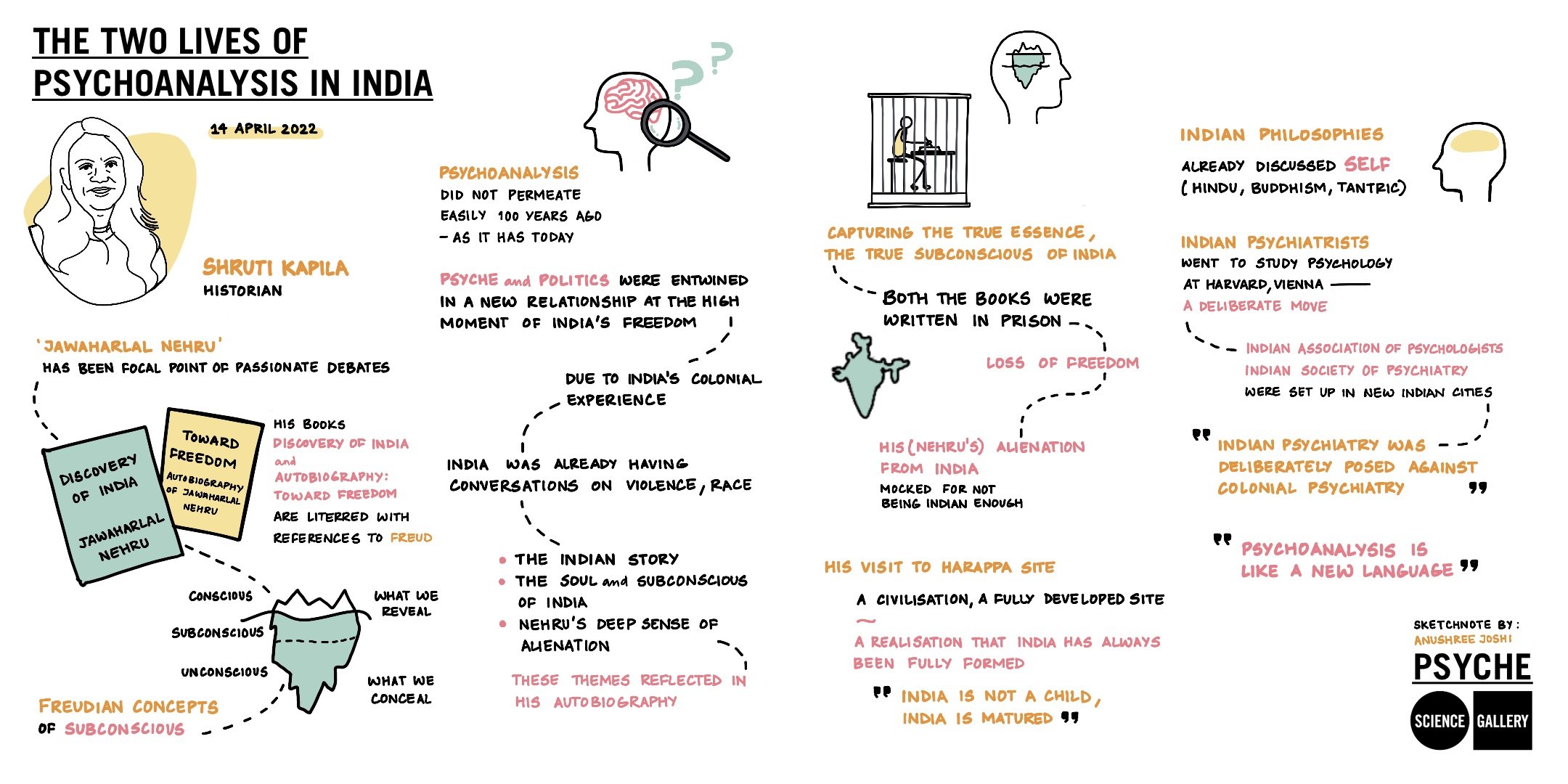The Two Lives of Psychoanalysis in India
Shruti Kapila’s talk opened with a discussion of the use of Freud by Nehru in his Autobiography: Toward Freedom (1936). The critical use and deployment of psychoanalysis enabled the fashioning of a modern Indian self, as Freud and psychoanalysis found an early home in India's diverse intellectual and cultural genres. Psyche and politics were entwined in a new relationship at the high moment of India's freedom.
In her talk, Nehru's self-narration was compared with some of the most prominent thinking and approaches of the Hindi novel of this era. While psychoanalysis enabled and defined India's freedom and modernism, its potential as a 'talking cure' remained marginal. Shruti Kapila concluded with a speculation on this problem of the two divergent lives of psychoanalysis in India.
About the Historian
Shruti Kapila is an intellectual historian and political thinker, currently University Lecturer in History and Convenor, History and Politics Tripos in the Faculty of History, and Fellow at Corpus Christi College, Cambridge University. Born, educated, and made in India, Kapila graduated from Panjab University Chandigarh with top honours, before reading for a Master's in Modern History at JNU, and a doctorate from SOAS, London University. Her professional life has been international. Prior to Cambridge, she held a research position at the University of Oxford and was Assistant Professor (in conjunction with a University Chair for Career Development) at Tufts University.
Her principal fields of scholarship and publications are Modern and Contemporary India (c.1770 to the present) and Global Political Thought. She also writes on the History of Modern Science and Race, Gender and Political Violence. Predating recent calls to ‘decolonise’ the curriculum by more than a decade, her academic life has been defined by centring the importance of India for the remaking of global political languages.





